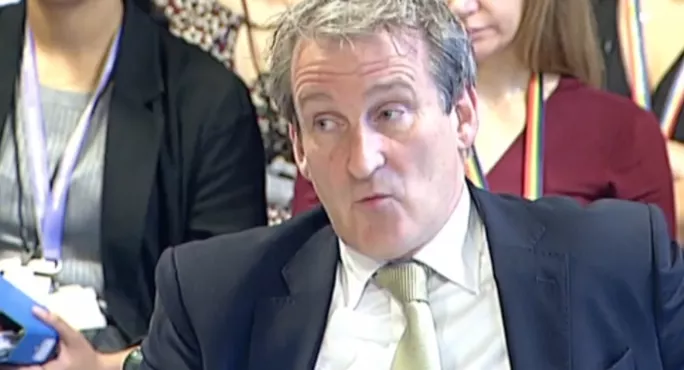Damian Hinds has rejected claims that the creative arts are being squeezed out of schools by a culture of targets and testing.
The education secretary was today quizzed by MPs on the Commons Education Select Committee about an Organisation for Economic Cooperation and Development (OECD) survey, which found that teachers in England worked the longest hours in Europe but spent less time teaching than they did five years previously.
Mr Hinds acknowledged the findings, blaming lesson-planning, marking and data analysis as the main drivers of non-teaching workload.
Quick read: ‘Dramatic decline’ in quantity and quality of arts in primaries
Music: DfE to publish new model music curriculum
Opinion: ‘We need an ‘arts premium’ in schools’
He said the Department for Education had put in place a toolkit to help schools identify where unnecessary work was happening, and that it was reforming the school accountability system.
However, Labour MP Thelma Walker, a former primary school headteacher, said the problem was “about the culture of targets and testing, high-stakes accountability”.
She told the education secretary: “The whole system, the whole culture in schools, is under stress and strain because of that, alongside the narrowing of the curriculum, so creative arts and all those opportunities for both teachers and pupils to enjoy learning have been removed, and that’s what I believe it’s about.
“As a professional for 34 years, that’s what’s happening in our schools. Thus the increase in mental health issues, and the recruitment and retention crisis.”
Mr Hinds interrupted at several points to say “no, no” and “no it’s not”.
Describing Ms Walker as a “distinguished former member of the profession”, Mr Hinds said: “I think you know that creative arts are happening at large scale in our schools and rightly so.”
Ms Walker interjected: “No, they’re not. The Fabian report Primary Colours says they’ve been cut.”
The research, which was published in January 2019, found that more than two-thirds (68 per cent) of primary teachers said there was less arts education now than in 2010.
The report concluded: “There has been a dramatic decline in both the quantity and quality of arts education in primary schools in England.”
However, Mr Hinds continued: “We want children to have a broad education. Yes, qualifications are important. They help you to get a job, they help you to get on in life, but they are not the only important thing.
“There’s also general self-development and there’s also self-discovery and the joy of learning, the joy of arts, the joy of music. I want children to be able to enjoy all of these.”
Ms Walker concluded by telling Mr Hinds: “I’m saying it’s being squeezed out”.




